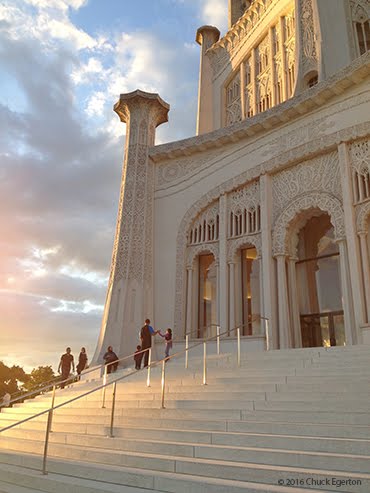
"If it be claimed that the intellectual reality of man belongs to the world of nature—that it is a part of the whole—we ask is it possible for the part to contain virtues which the whole does not possess? For instance, is it possible for the drop to contain virtues of which the aggregate body of the sea is deprived? Is it possible for a leaf to be imbued with virtues which are lacking in the whole tree? Is it possible that the extraordinary faculty of reason in man is animal in character and quality? On the other hand, it is evident and true, though most astounding, that in man there is present this supernatural force or faculty which discovers the realities of things and which possesses the power of idealization or intellection. It is capable of discovering scientific laws, and science we know is not a tangible reality. Science exists in the mind of man as an ideal reality. The mind itself, reason itself, is an ideal reality and not tangible.
Notwithstanding this, some of the sagacious men declare: We have attained to the superlative degree of knowledge; we have penetrated the laboratory of nature, studying sciences and arts; we have attained the highest station of knowledge in the human world; we have investigated the facts as they are and have arrived at the conclusion that nothing is rightly acceptable except the tangible, which alone is a reality worthy of credence; all that is not tangible is imagination and nonsense.
Strange indeed that after twenty years training in colleges and universities man should reach such a station wherein he will deny the existence of the ideal or that which is not perceptible to the senses. Have you ever stopped to think that the animal already has graduated from such a university? Have you ever realized that the cow is already a professor emeritus of that university? For the cow without hard labor and study is already a philosopher of the superlative degree in the school of nature. The cow denies everything that is not tangible, saying, “I can see! I can eat! Therefore, I believe only in that which is tangible!”
Then why should we go to the colleges? Let us go to the cow."
`Abdu'l-Bahá,
The Promulgation of Universal Peace, pp. 360-361
10 October 1912
(excerpt from) Talk at Open Forum
San Francisco, California
Frank McKelvey RMA
 "CONSIDER how at the time of the appearance of every Revelation, those who open their hearts to the Author of that Revelation recognize the Truth, while the hearts of those who fail to apprehend the Truth are straitened by reason of their shutting themselves out from Him. However, openness of heart is bestowed by God upon both parties alike. God desireth not to straiten the heart of anyone, be it even an ant, how much less the heart of a superior creature, except when he suffereth himself to be wrapt in veils, for God is the Creator of all things."
"CONSIDER how at the time of the appearance of every Revelation, those who open their hearts to the Author of that Revelation recognize the Truth, while the hearts of those who fail to apprehend the Truth are straitened by reason of their shutting themselves out from Him. However, openness of heart is bestowed by God upon both parties alike. God desireth not to straiten the heart of anyone, be it even an ant, how much less the heart of a superior creature, except when he suffereth himself to be wrapt in veils, for God is the Creator of all things."







